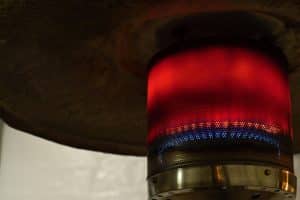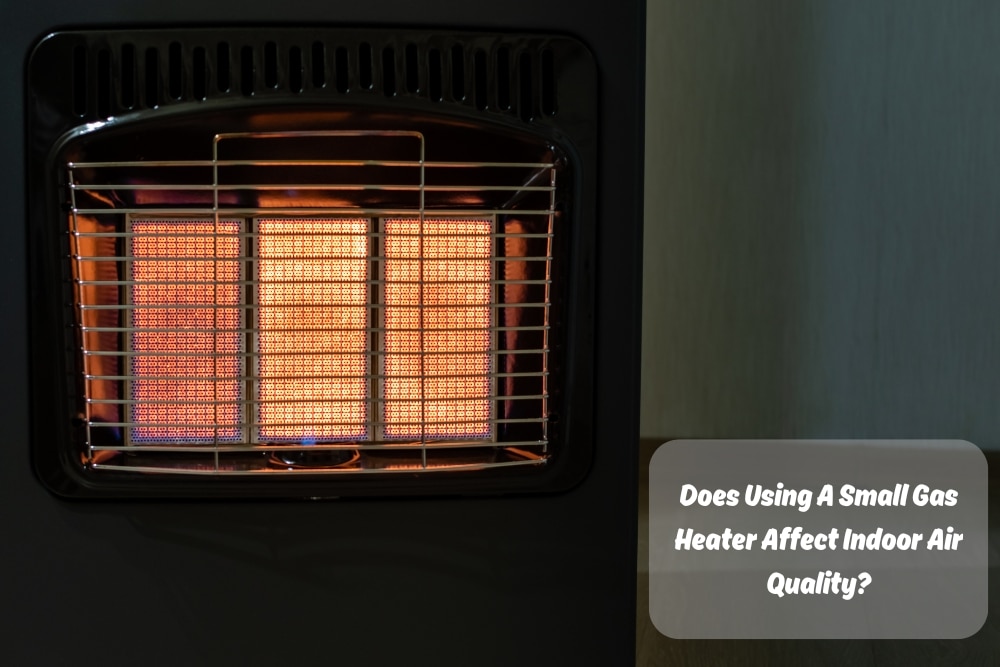Keeping cosy when the temperature dips is a must, and those little gas heaters seem like a perfect answer. But hold on, there’s been some buzz about them affecting the air quality inside your home. This article dives into the not-so-great side of a small indoor gas heater, what you can do to vent them safely, and who might be most affected by iffy air quality.
Can a small indoor gas heater pose health risks?
The short answer is yes. Gas heaters can be tricky if you’re not on top of things. Here’s the deal:
- Carbon monoxide (CO): Imagine a sneaky roommate you can’t see or smell. That’s CO! Leaky heaters or bad ventilation can trap this gas, leading to headaches, dizziness, and even scarier stuff in high doses.
- Nitrogen dioxide (NO2): Ever feel that scratchy throat after a while? NO2 can mess with your lungs and make asthma act up. Not exactly ideal for cozy movie nights.
- Tiny air particles: Gas heaters can release microscopic particles that mess with your airways and might even be linked to heart problems. More like uninvited guests, you don’t want to hang around.
What pollutants can be emitted by a small indoor gas heater?
Love that little gas heater keeping you warm, but burning fuel ain’t exactly fresh air, you know? Here’s the not-so-fun stuff that might be chilling with your heater, messing with your air quality:
- Watch out for this carbon monoxide gas – It comes from heaters that don’t burn fuel properly and build up in rooms with no fresh air. CO poisoning is no joke – it can cause headaches, dizziness, and even be super dangerous at high levels. Yikes!
- Nitrogen Dioxide – A bunch of gassy pals that form when things get burnin’ hot, like in a car engine. One of those buddies, nitrogen dioxide (NO2), can mess with your lungs, making it harder to breathe, especially if you’re already breathing heavily with asthma or allergies. It’s not exactly a good friend to the outdoors either, NO2 contributes to that nasty acid rain.
- Water Vapour: This one might seem innocent, but it’s all about keeping things balanced. Burning gas creates water vapour as a side effect. But too much moisture hanging around, especially with not enough fresh air, can turn into mouldy trouble. Mould spores can mess with your breathing and allergies, which isn’t exactly the comfy home feeling you’re after.
- Watch out for formaldehyde, too. Gas heaters can chug out a little bit of this gas, especially if there’s a lot in the air. It has a sharp smell and can irritate your eyes, nose, and throat. Not ideal. Long-term exposure isn’t great either, so keeping the levels low is a good idea.
The amount of these unwelcome guests depends on a few things. The type of gas your heater uses (natural gas or propane), how efficient it is, and how well you maintain it all play a role.
How does ventilation impact indoor air quality?
Here’s where the good news comes in! Proper ventilation is your best mate when it comes to keeping the air fresh while using a gas heater:
- Fresh air frenzy: Crack a window a bit to let fresh air in and push stale air out. Aim for a gentle cross-breeze if you can – think of it as an indoor air party!
- Exhaust fan fiesta: Got an exhaust fan in the room? Turn it on while you’re using the heater and for a bit after. It’ll help remove any nasties.
- Vent attention: Make sure your heater’s vents aren’t blocked by furniture or curtains. They need space to breathe too!
Can you minimise the risks of using an indoor gas heater?
Here’s how to stay safe while you’re toasty warm:

- Yearly check-up: Once a year, get a pro to check it out. This keeps it running smoothly and cuts down on the risk of carbon monoxide leaks – that nasty stuff no one wants around.
- CO detector: Your buddy! Grab a battery-powered CO detector. Stick it on the wall at eye level in your living area. This little device will alert you if CO starts building up.
- Open up when you heat up – Only use your gas heater in a well-ventilated space with open windows or doors.
- Think green(er) – If clean air is a big concern for you, electric heaters or reverse cycle air conditioning might be better options. These can be especially good for people with breathing problems or those who want cleaner air overall.
While considering indoor air quality improvements, you might also explore exterior options like solar reflective roof coating, which can help regulate your home’s temperature without compromising air quality.
Who is most vulnerable to the effects of poor indoor air quality from a gas heater?
Some people are more at risk from the health effects of poor IAQ caused by gas heaters:
- Little lungs: Children: Their developing respiratory systems are more sensitive to pollutants.
- Moms-to-be: CO exposure can harm a developing baby.
- Breathing trouble buddies: People with respiratory problems: – Existing conditions like asthma can be worsened by poor IAQ.
- The golden years crew: Elderly people: – Their respiratory systems might be less effective at filtering out pollutants.
Final thoughts
Small gas heaters can definitely add warmth, but being mindful of IAQ is important. By following these tips about ventilation, maintenance, and CO detectors, you can enjoy the warmth safely.
Breathe easy: Get your free gas heater consultation today!
Feeling the winter blues already? Don’t sweat it, Apex Gas Heaters is here to be your heating hero. Our technicians are total pros at keeping your gas heater happy and healthy, which means a warm and toasty you all winter. Plus, they’ll make sure everything’s safe and not spewing any yucky stuff into the air.
We can fix gas heater problems, clean it up well, and make sure it’s running like a champ. Plus, safety and clean air are our top priorities. No need to worry about breathing nasties while you cuddle up this winter. Skip the shivers and call us today! We’ll get your heater happy and your home cosy in no time.

